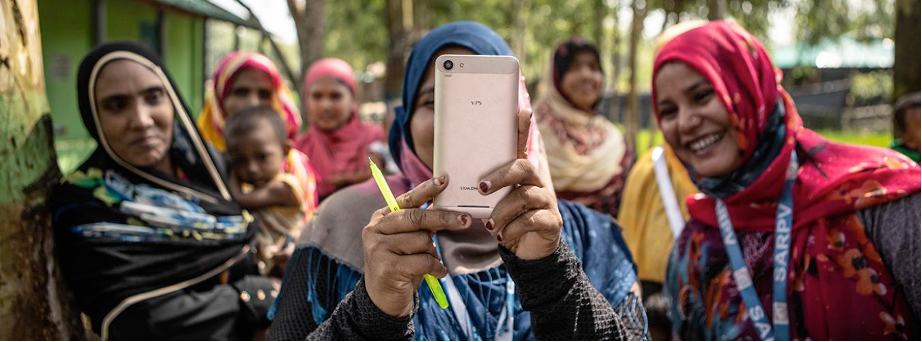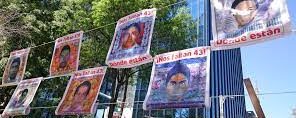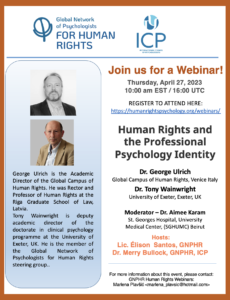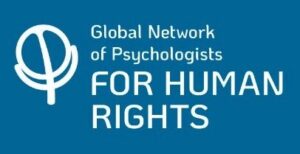
Editor’s Note
The focus in this month’s Bulletin is International Women’s Day, March 8 and One Year after Russia Invaded Ukraine, February 24, 2023
Table of Contents
SPECIAL FOCUS: International Day of Women, 2023
SPECIAL FOCUS: One Year After the Invavio of Ukraine
SPECIAL SECTION
International Women’s Day 2023

International Women’s Day: Date, History and This Year’s Theme
Josie Kao, March 7, 2023, Reuters.
Here is a look at what the global event stands for, this year’s theme and the issues that activists are focusing on.
IWD (International women’s day) is an annual event to celebrate the achievements of women and push for rights progress. It has roots in the U.S. socialist and labour movements of the early 20th century, particularly as women were fighting for better working conditions and the right to vote. The first recorded celebration was in 1911 in Austria, Denmark, Germany and Switzerland when over a million people rallied to support women’s rights. Since then, the event has grown not only in size but also in its scope. Focus has expanded to issues ranging from violence against women to parity in the workplace.
The U.N.’s theme this year is “DigitALL: Innovation and technology for gender equality.” The topic highlights how technology is crucial to advancing rights but a growing digital gender gap is impacting everything from women’s job opportunities to safety online.
According to the U.N., 259 million fewer women have access to the internet than men, and women are largely underrepresented in science, technology, engineering and mathematics careers. “Bringing women into technology results in more creative solutions and has greater potential for innovations that meet women’s needs and promote gender equality,” says the U.N.’s website. “Their lack of inclusion, by contrast, comes with massive costs.”
Listening to the spaces in between
S. Mona Sinha, Equality Now, March 7
A message from the new global executive director of Equality Now.
More than 100 years ago, French composer Claude Debussy wrote that ‘the music is not in the notes, but in the spaces between them.’
These beautiful words are still relevant today, and I am reminded of them often – whether it is during discussions with funders about climate solutions or while witnessing world leaders battling for attention on the global stage. We’re all so busy talking that no one is actually listening.
If we are to meet the UN’s Sustainable Development Goal of achieving gender equality and empowering all women and girls by 2030, it is those who live with the daily consequences of gender discrimination to whom we must first listen; and it is they who must determine the policies and legal frameworks we use to eradicate violence, to eliminate exploitation, and to end practices that inhibit the autonomy and agency of all women and gender minorities.
Listening can be a radical act because it involves learning to trust each other, and as we all know, wherever there is trust, there is risk. But I believe that it is a risk worth taking. Because to listen – to cultivate trust – is to redistribute power: and that is how we change the world.
Protests break out in Iran over schoolgirl illnesses
Frances Kerry, March 4 2023, Reuters.
Worried parents protested in Iran’s capital Tehran and other cities on Saturday over a wave of suspected poison attacks that have affected schoolgirls in dozens of schools, according to Iranian news agencies and social media videos. The so-far unexplained illnesses have affected hundreds of schoolgirls in recent months. Iranian officials believe the girls may have been poisoned and have blamed Tehran’s enemies.
“It is one of the immediate priorities of Iran’s government to pursue this issue as quickly as possible and provide documented information to resolve the families’ concerns and to hold accountable the perpetrators and the causes,” Foreign Ministry spokesperson Nasser Kanaani told state media. Schoolgirls were active in the anti-government protests that began in September. They have removed their mandatory headscarves in classrooms, torn up pictures of Supreme Leader Ayatollah Ali Khamenei and called for his death.
 Read the Blog Women: victims, fighters, and witness
Read the Blog Women: victims, fighters, and witness
One Year after Russia Invaded Ukraine, February 24, 2023

Thousands of Ukrainian children put through Russian ‘re-education’ camps, US report finds.
Helen Sullivan, The Guardian, Wednesday 15 February, 2023. New report details network of dozens of Russian camps aimed at giving children pro-Moscow views, with some children detained indefinitely.
Raymond said that Russia was in “clear violation” of the Fourth Geneva Convention on the treatment of civilians during war and called the report a “gigantic Amber alert” – referring to US public notices of child abductions. The Russian activity “in some cases may constitute a war crime and a crime against humanity”, he told reporters. Ukraine’s government recently claimed that more than 14,700 children had been deported to Russia, where some had been sexually exploited.
Read the report: Russia’s systematic program for the re-education & adoption of Ukraine’s children. 14 February 2023. A conflict observatory report, Yale school of public health. Humanitarian research lab.
What the war means for Ukrainians with disabilities
Amandas Ong, Al Jazeera, October 2, 2022. Rights activists and carers are filling the gap as the war creates huge challenges in accessing disability support. All the facilities for children with developmental disabilities shut down because they refused to cooperate with the Russian occupiers, which we think is the honourable thing to do. Ukrainians with intellectual and physical disabilities – as well as their carers – continue to encounter huge challenges in accessing the support they need.
According to two Brussels-based NGOs, the European Disability Forum and Inclusion Europe, some 2.7 million people with disabilities are registered in Ukraine. Of these, an estimated 261,000 have intellectual disabilities. Both organisations have documented a drastic deterioration in the quality of life for Ukrainians with disabilities.
Forging a Future Under Fire. Hope for Ukraine.
OPEN SOCIETY FOUNDATIONS, 8 February 2023
The Open Society Foundations are working to support Ukrainian civil society, bolster international solidarity with Ukraine, and preserve the dignity of those displaced and affected by the conflict.
February 24 marks the one-year anniversary of Russia’s all-out invasion of Ukraine. Reporters have faithfully followed the conflict, as Russia seeks to expand its fighting force and continues to shell civilians, while Ukraine seeks additional military firepower from the West. Often overlooked amid the battlefield headlines are the many ways Ukrainian civil society has struggled, survived, and thrived under extraordinary conditions. We spoke with Oleksandr Sushko, executive director of the International Renaissance Foundation in Ukraine, about the trials and triumphs of his staff, partners, and grantees—and the efforts to rebuild a battered yet resolute nation that lie ahead.
The International Renaissance Foundation and partners are actively moving forward on plans to rebuild Ukraine. It’s a complex issue. Of course, the grand rebuilding strategy can only be implemented after the end of the war. But in many areas, we can’t wait until then. Those territories liberated from Russian occupation by Ukraine’s fighting force require immediate support to help people return to live there, and to restore schools, hospitals, and the like. But longer term, we are developing strategies to ensure public engagement, to ensure communities take ownership over their reconstruction, and to secure civil society participation in promoting transparency and accountability as Ukraine rebuilds.
A year into this conflict, what would you consider civil society’s greatest successes?
There are many independent journalists continuing to work under fire to tell the world what is happening. Human rights groups collecting evidence and building cases to hold Russia accountable for war crimes. Effective fundraising by grantees and partners to help support Ukrainian armed forces, bolster hospitals, keep medical supplies moving, aiding displaced persons and refugees. The Nobel Peace Prize was awarded to the Center for Civil Liberties, which is chaired by a member of our foundation’s board. That was a remarkable recognition of resilience under fire.
Timothy Snyder: The Making of Modern Ukraine. Class 1: Ukrainian Questions Posed by Russian Invasion
Yale Courses.
Class 1 is an introduction to the course and an exploration of questions raised by the Russian invasion of Ukraine. Timothy Snyder is the Richard C. Levin Professor of History at Yale University and a permanent fellow at the Institute for Human Sciences in Vienna. Course reading list.
The Ukrainian Muslims fighting against Russia
Micah Reddy & Anastasia Levkova, Al Jazeera, 4 August 2022.
Those who have joined the war effort against Russian forces also fight past injustices and to return to Crimea. In 2015, Khadzali became a chaplain – an imam offering spiritual services within a military context. The previous year, the Maidan revolution saw Ukrainians take to the streets to protest against the pro-Russian government of President Victor Yanukovych. His forces responded with a brutal crackdown that killed more than 100 protesters and injured thousands. Yanukovych was overthrown and soon after, Russian-backed separatists took up arms in the Donbas regions of Donetsk and Luhansk, beginning an eight-year war and precursor to Russia’s invasion in February 2022.
Although Muslims make up only about 1 percent of the predominantly Christian country of 44 million people, many have joined the war effort following Russia’s invasion. Many are driven by a history of Russian injustices against Muslim communities and support for what is seen as an open and tolerant Ukraine. The majority of Ukraine’s Muslim population are Crimean Tatars, Sunni Muslims of Turkic origin. For those who fight, it is also a fight to return to their homeland, Crimea – a peninsula of steppe land jutting out into the Black Sea and buttressed by mountains in the south – annexed by Russia in 2014.
GNPHR NEWS AND EVENTS
 GNPHR Webinar Series – Human Rights and Psychology
GNPHR Webinar Series – Human Rights and Psychology
Next Webinar is April 27, 2023 – 10 am EST/4 pm CET
Topic: Human Rights and the Professional Psychology Identity
View all webinars in series here https://humanrightspsychology.org/webinarseries
REGISTER HERE for April Webinar
Upcoming Webinar: June, 2023 – Human Rights and Forced Migration
Psychology Organizations and Human Rights
The Network of Human Rights Groups in Psychology Associations is open to representatives of psychology associations that have established a committee, office, or subgroup focused on psychology and human rights. If you are interested in joining the group please register your interest here https://humanrightspsychology.org/home/about/interest-form-gnphr-working-group/
CONTENT AREAS AND NEWS
General
Human Rights Defenders Awards (US Dept of State) announed
2/2023: “As we celebrate both the 75th Anniversary of the Universal Declaration of Human Rights and the 25th Anniversary of the UN Declaration on Human Rights Defenders, we are pleased to honor this cohort of Awardees – ten individuals from around the globe who have demonstrated leadership and courage while promoting and defending human rights and fundamental freedoms; countering and exposing human rights abuses by governments and businesses; and rallying action to protect the environment, improve governance, and secure accountability and an end to impunity.
This year’s cohort represents defenders with varied backgrounds and far-reaching potential. From working to combat slavery denialism to promoting election and labor rights, all ten honorees embody the values enshrined in the Universal Declaration of Human Rights.
These awards are determined by the Bureau of Democracy, Human Rights, and Labor.
This year’s awardees are:
Mohammad Nur Khan – Bangladesh – His timely interventions, advocacy on behalf of families of victims of enforced disappearances, and leadership amongst the country’s active civil society networks, have saved lives and cleared innocent victims of politically motivated charges.
Elaize de Souza Farias – Brazil – a cutting edge Indigenous investigative journalist who reports on issues of the environment, agriculture, Indigenous and traditional peoples, ethnicity, race, gender, and the fight against violence in the Amazon, linking these themes to the larger issues of belonging and identity.
Chhim Sithar – Cambodia – leads the Labor Rights Supported Union of Khmer Employees and speaks out about labor rights.
Nino Lomjaria and Team – Georgia – as Public Defender of Georgia advocated strengthened human rights protections for all,
Rosa Melania Reyes Velásquez – Honduras – fights violence against women in Honduras, and spurred action to secure accountability and end impunity, assisting more than 7,300 women in their fight for justice.
Nasrin Sotoudeh – Iran – human rights lawyer and leading activist currently sentenced to a cumulative 38 years in prison and 148 lashes for providing legal defense services to women charged with crimes for not wearing a hijab.
The legal team of the Badinan detainees, led by Bashdar Hassan – Iraq – human rights lawyer for journalists, activists, and protesters that Amnesty International stated were “arbitrarily arrested” and “forcibly disappeared” at great personal and professional risk, facing intimidation efforts, harassment, and anonymous death threats.
Mohamed Ely El Her – Mauritania – securing land rights for former victims of slavery, helping communities of former slaves and Afro-Mauritanians to overcome their own land ownership issues.
Ding Jiaxi – People’s Republic of China – supported independent candidates to run in local elections, launched campaigns calling for government officials to disclose their personal finances, called for property rights, and demanded educational access for migrant children. Currently in detention.
Ekoue David Joseph Dosseh – Togo – doctor building capacity of Togolese civil society, fighting against injustice and impunity, and promoting democratic advancement across the region for over 15 years.
Freedom of Expression
Academic Freedom Monitoring Project
Scholars at Risk Network.
SAR’s Academic Freedom Monitoring Project focuses on developing a greater understanding of the volume and nature of attacks on higher education communities in order to develop more effective protection responses. The Monitoring Project aims to identify, assess and track incidents involving one or more of six defined types of conduct which may constitute violations of academic freedom and/or the human rights of members of higher education communities: Killings/violence/disappearances, Wrongful imprisonment/detention, Wrongful prosecution, Restrictions on travel or movement , Retaliatory discharge/loss of position/expulsion from study, Other significant events.Incident reports are produced by a network of higher education and human rights professionals—including faculty-led graduate student clinics at SAR member institutions—serving as volunteer monitors for specific countries or regions.
Human Rights Education
The ISHR Academy
This free open-access e-learning platform which provides online learning modules, tools, insider tips, stories of good practice and more to help demystify the UN human rights system and build the capacity of human rights defenders to push for change. It includes modules on the Human Rights Council or Special Procedures for example.
We use the learner-centred methodology for all our courses and welcome a wide range of audience.
Inclusion, Exclusion, Racism
The change of the advanced placement (AP) course on African American studies
Heather Cox Richardson, February 19, 2023, Washington Post.
Between February 2022, when its prototype first appeared, and February 2023, when the official version was released. One word, in particular, had vanished: the word “systemic.” In February 2022, “systemic” appeared before “marginalization; in April 2022, “systemic” came before “discrimination, oppression, inequality, disempowerment and racism.” By February 2023, that word was gone. The far right opposes the idea that the United States has ever practiced systemic racism. Shortly before former president Trump left office, his hand-picked President’s Advisory 1776 Commission produced its report to stand against the 1619 Project that rooted the United States in the year enslaved Africans first set foot in the English colonies on the Chesapeake, and went on to claim that systemic racism had shaped the eventual American nation.
LGBTQI+, Gender Rights
Mob attacks two Tunis shelters for LGBTQ people from sub-Saharan Africa
Fatma Ben Hamad,France24 The Observers, March 3, 2023.
A mob of men wielding sticks and knives attacked a shelter for LGBTQ refugees and asylum seekers from sub-Saharan Africa on February 23. Police called to the site arrested at least eight people from sub-Saharan Africa, even though they have refugee status and are therefore legal residents in Tunisia. This is the latest violence to occur in a climate of growing hostility towards Black Africans, spurred by a campaign of repression by the authorities and xenophobic comments made by the Tunisian president.
Women
Gender Tech Toolkit: Building digital solutions for, with and by girls, by UNICEF
Online experiences are important for young people’s development across a wide range of areas, however, there is a gender digital divide: girls are disadvantaged when it comes to digital adoption, have lower levels of access to and use of digital technology than boys, and often they are not benefitting from digital technology in the same way as boys. UNICEF’s EAPRO Gender and Innovation team developed a toolkit with best practices, to support innovators, designers and implementers of digital products and services, to benefit girls and young women equally and help close the gender digital divide.
HREA’s Online Resource Center contains this guide, and many other HRE resources that may be useful for your work.
OPPORTUNITIES
Awards
Human Rights Award: Deadliue August 2023
International Council of Psychologists Human Rights Award
This award recognizes work being done by psychologists to advance human rights. The award is given to a psychologist or a group/organization largely composed of psychologists that has done substantial work to address human rights issues locally or globally through education, research, service or advocacy. Human rights are defined broadly and include social, cultural, economic, civil, and political rights. Deadline August, 2023.
Events, Courses
HREA offers an online course Introduction to Human Rights Education from 5 April – 16 May 2023. This course will be taught by HREA Director Felisa Tibbitts and will introduce the international field of human rights education (HRE), including presentations of programming approaches, pedagogical practices and teaching and learning resources. Participants will be exposed to ‘the basics’ of curriculum design and develop an applied product.
Celebrate Black History Month with UN Guided Tours
The United Nations Outreach Programme on slavery and the transatlantic slave trade.
Black History Tour (60 minutes). The virtual Black history-themed tour of the United Nations will provide you a unique look at how the lives of people of African descent have intertwined with the mission of the United Nations in fields such as peace and security and human rights, with a special emphasis on decolonization. Through the lens of the United Nations and its work, the tour is a source of inspiration for the fight against all forms of prejudice, racial discrimination and social injustice.
Book online: https://fareharbor.com/embeds/book/visit-un/items/244578/calendar/2023/02/?flow=701639&full-items=yes&back=https://www.un.org/en/visit/virtual-tours&a=yes&g4=yes
Calls for Papers
Call for papers: Practicing decolonial and liberation psychologies : Deadline March 30, 2023
Submission deadlines: Letter of intent deadline: March 30, 2023, Invitation to submit will be sent out: April 30, 2023, Manuscript submission deadline: August 30, 2023
Much of the growing scholarship in this area has focused on decolonizing psychological research, methods, and theories, with significantly less attention to psychological practice and applied work in communities. In this special issue we plan to address the gaps in the literature by recognizing and sharing the work of colleagues who have consistently engaged in decolonized and liberatory approaches to mental health.
Building on the struggles against disenfranchisement, we wish to elevate community-based, culturally embedded, and liberatory healing strategies that attend to the needs and self-determination of those most impacted across the world.
Specifically, through contributions to this special issue, we hope to highlight descriptions of decolonial and liberatory mental health healing interventions. The call is guided by the following two questions: (a) what are current decolonial and liberation psychological practices in therapy and healing work? And (b) what are the epistemological approaches and evidence (including cultural evidence) supporting this work?
We encourage manuscripts adopting multiple and interdisciplinary perspectives and those that center their work within ancestral wisdom, spiritual, and cultural practices, Indigenous ways of knowing, stewardship of our natural and cultural resources, resisting oppression, and those who speak from the lens of their own lived experiences of surviving, resisting and transcending colonization on an ongoing basis.
Call for Papers | Symposium on Community, Psychology and Climate Justice: Deadline March 30, 2023
Hybrid symposium on Community, Psychology and Climate Justice on 5-7 June 2023 in Johannesburg, South Africa. Hosted by the University of Johannesburg, University of Cincinnati, and York St. John University. Selected papers will be invited to submit a chapter to an edited collection after the symposium. Brendon Barnes, Garret Barnwell, Maria Fernandes-Jesus, Carlie Trott.
The world is experiencing increasing global heating and adverse weather patterns, with associated biodiversity loss, natural disasters, displacement, migration, and negative health impacts. Psychologists, however, have been somewhat slow to acknowledge how climate change intersects with historical and contemporary injustices, including colonisation, racism, environmental health disparities, human rights violations, sexism, migration, and extractivism, to name a few. Psychologists have tended to downplay the politics of climate justice, too often adopting an apolitical stance that focuses on individual agency, attitude shifts, behaviour change and education.
CONTACTS: Published by the Global Network of Psychologists for Human Rights – www.humanrightspsychology.org
Disclaimer: The website of the Global Network of Psychologists for Human Rights (GNPHR) contains articles, events and news about the domain where psychology and human rights intersect. The information presented in this Bulletin, does not imply that the GNPHR shares the views and beliefs in the articles.
- @GNPHR1
- How to get involved – read how you can contribute to the global network
- Consider contributing a Blog/Commentary
- News and Bulletins from the GNPHR – Subscribe to GNPHR
- Email addresses:
Ways to Participate in Global Network Activities
- Student/young person representation on the GNPHR Steering Committee
Are you a student or young person (under 35 years of age) interested in joining the GNPHR Steering Committee? The GNPHR invites applications. Role description: The terms of reference broadly define the roles of all members of the steering group. Individual steering committee member tasks include : Each member will take responsibility for one of the following: (a) A specific content area or group of areas; (b) A specific project (e.g. survey of human rights reporting mechanisms; survey of educational programs in psychology/human rights, etc); (c) A specific function: for example, organizing a newsletter; soliciting commentary or newsletter blogs; seeking grant possibilities; outreach to general human rights organizations; outreach to psychology organizations or (d) Consultation: Working in collaboration with other organisations where there is a specific issue. In addition, from time-to-time, short-term subgroups may work on specific projects. In addition, for the student member, there would be a specific remit to liaise with other organisations that are focussed on younger people, psychology and human rights. Click here if you are interested in being nominated. - Share Your Experiences and Examples
One of the best ways to illustrate the intersection of psychology and human rights is through example. We are looking for examples of your encounters with human rights issues in your professional life. You might describe a time when you protected (or failed to protect) human rights, or advocated for what you saw as a human rights issue. The events might be in your clinical, research, academic, applied, or volunteer work. Please send your narrative / story (500-1000 words) to Marlena Plavšić (marlena_plavsic@hotmail.com). We will compile these for publication in the GNPHR Bulletin and on the website. Please also indicate if you would like your stories to remain anonymous. - Share your Expertise and Opinions
We invite you to contribute a blog or opinion piece on general human rights issues; human rights education or strategies for raising the profile of human rights within psychology or your professional life. Students are welcome to contribute, including on student needs for learning about and addressing human rights. Please contact the GNPHR Blog editor (blogeditor@humanrightspsychology.org) with ideas for the article you would like to write! - Send articles/news/events
If you come across a human rights article or news, or know of an upcoming hunman rights event, please send for publication in the Bulletin. Send to the Bulletin editor Polli Hagenaars (polli.hagenaars@gmail.com).

